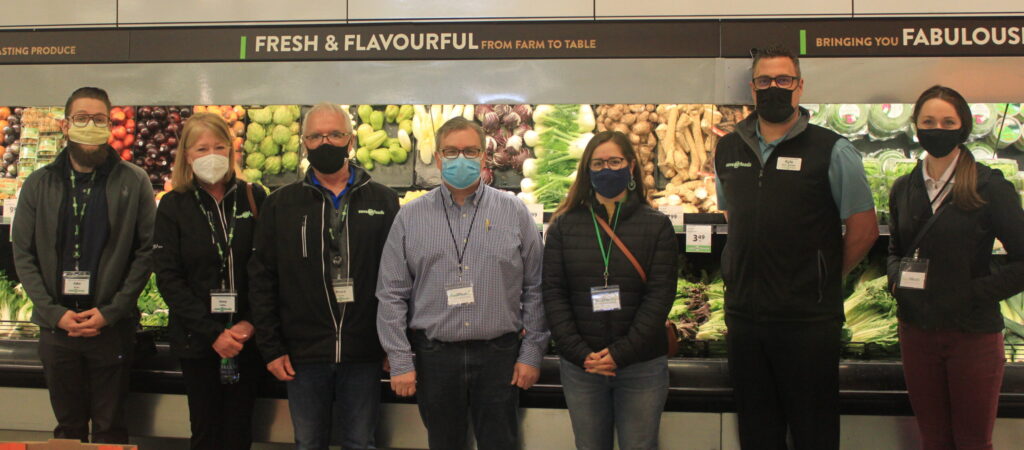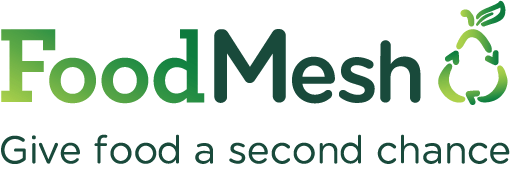
15 Mar How Save-On-Foods is helping North Vancouver farm animals live long and healthy lives
As food prices soar, it’s not only consumers who are affected. Farmers are also feeling the squeeze as they struggle to keep their animals fed. “It costs us around $100 a week to buy fresh produce to feed our animals,” explains Selina Merrick, Supervisor of North Vancouver’s iconic Maplewood Farm.
That all changed last week when FoodMesh connected the farm to its local Save-On-Foods at Park & Tilford. Now, every week, the farm collects the store’s fresh produce food that it can no longer sell and is not appropriate to donate to its charity partner, to feed its 76 animals – which include horses and ponies, cows, sheep, ducks, guinea pigs, rabbits and goats.




“Funds that we would otherwise be spending on food can be allocated to enriching the lives of our animals, thanks to the connections we have made with FoodMesh and its partnership with Save-on-Foods. Building these relationships is also important for creating a sustainable future for the farm,” Selina explains.
Building these relationships is important for creating a sustainable future for the farm
– Selina Merrick, Maplewood Farm Supervisor
All of the human edible food that the store can no longer sell is collected every day by the Immigrant Link Centre Society, which uses it to supply their food security programs, and shares what they don’t use with an extensive network of other organizations in the area.

Kyle Draney, Store Manager, explains: “When fresh items like meat, dairy, baked goods and produce are no longer able to be sold to customers we provide them to local charities daily to be repurposed into meals for those in need. In this case, we’re repurposing produce trimming to the farm instead of ending up in the compost or landfill. Our team members and customers have confidence that we are striving to reduce our food waste.”

For the farm – as well as save them money, these donated products help them keep their animals healthy: “While the animals’ diets consist mainly of grain and hay, we supplement it with fresh produce to enrich their diets and make sure all of their nutritional requirements are being met. We want to ensure all our animals have access to a nutritious diet that will sustain them for living as long and as healthily as possible,” says Selina.
We want to ensure all our animals have access to a nutritious diet that will sustain them for living as long and as healthily as possible
– Selina Merrick
This partnership with the farm is especially meaningful for North Vancouver-raised Bruce Currie, Energy and Sustainability Manager of Save-On-Foods, who leads the stores’ efforts to reduce their food waste.
“This arrangement to donate produce to Maplewood Farm is one of the coolest things I’ve ever done in my 45 years of working. I love to watch the kids interacting with the animals, knowing that what we’re doing is helping the animals, and helping the environment. It’s the right thing to do.”

I love to watch the kids interacting with the animals, knowing that what we’re doing is helping the animals, and helping the environment. It’s the right thing to do
– Bruce Currie, Energy and Sustainability Manager of Save-On-Foods
In 2018, Save-On-Foods formalized its effort to reduce food waste and measure results, with a stated goal to reduce food waste destined for landfill by 50%, by 2025. Save-On-Foods achieved that goal in June 2019, and has a new target of zero food waste to landfill in all stores, by the end of 2022.
FoodMesh works with 81 Save-On-Food stores in BC, Alberta and Manitoba. They donate food directly to 48 charities, who in turn, share it with a network of at least 909 charitable organizations across the three provinces. These stores also share food directly with at least 9 farmers for them to feed their animals.
Since FoodMesh and Save-On-Foods started working together back in 2018, we have helped them divert 13 million KG of food away from landfill, and donated the equivalent of 16 million meals to charities (and counting).

This is a great example of the Metro Vancouver Food Recovery Network in action.
The Metro Vancouver Food Recovery Network is designed to help organizations quickly and easily divert their surplus food to organizations that can put that food to its highest-end use. Learn more and join the network.
Written by Megan Czerpak, Head of Communications at FoodMesh


